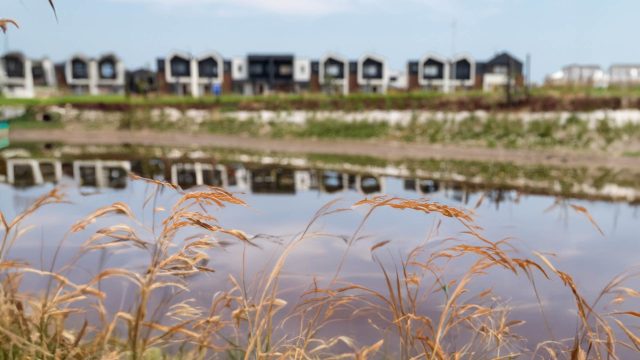5 Habits of a Successful Saver
The importance of savings has become more apparent in post-COVID times than ever before. According to Nine News, “Saving looks different to everyone! A blanket budgeting system doesn’t work because it’s not personalised.
Sometimes savings looks like paying yourself a wage and saving the rest. Others prefer to use micro-savings apps like Round-Up. Maybe it’s easier for you to save lump sum payments instead, like TAX refunds, bonuses or commissions.
Regardless of your method, I think we can all agree that savings work best when you have a regular spending habit, and they’re mapped out in advanced with a goal in mind.
The importance of savings has become more apparent in post-COVID times. According to Nine News, “One in five Australians who have already lost their job as a result of COVID-19 would run out of savings within a week if they weren’t receiving government assistance.”
Your team has put together a list of five tips that they have noticed make a difference to the aspiring landowners in their community. Let us know which of these work for you, or if you’ve got anything to add!
1. Reverse Engineer Your Goals:
Basically, deciding what you want first can help get the dreams out of your head and onto paper. Once you’ve done that, it is a lot easier to put the numbers on a timeline that works for you.

My Windermere – Defining your Goals.
As with all things that are goal orientated, once you have the reason you’re saving and a specific amount to achieve, you’re more likely to stick to it over the many temptations in today’s quick spend culture.
VALUE TIP: Reducing any high-interest debt you may have is a great place to begin when saving.
Do you need to be held accountable? Check out this MoneySmart Budgeting Tool, well begun is half done!
2. Select a Savings Account:

My Windermere – Townhomes by SOHO Living
Be Scrupulous.
Don’t settle for your long time bank when it comes to savings accounts. I actually prefer to save in a bank I’m not using, and have it steadily increasing in the background. Without a way to easily transfer out of or access the money, I eliminated impulse buys, and am forced to think about all bigger purchasers.
Think of banks as stores with different products. Each bank has different accounts, with different pros and cons. Some may look very similar, but doing your due diligence can make a big difference to your bottom line.
Some accounts give you bonus interest if you don’t make withdrawals, others offer a higher interest rate but won’t let you withdraw money before a fixed date.
VALUE TIP: Instead of saving what you have left each month, budget and pay your savings first. This way you can prioritise your spending on a budget, and stick to your savings goals.
3. Make Saving a Prioritised Habit:

My Windermere – Habits
Speak to your employer about whether they can have a portion of your pay sent to your savings account directly. Alternatively, set up a direct debit to go from your account to your savings account the day after you get paid.
It’s a great idea to check the direct debits that you have coming out of your savings account too. $8 per month charges here and there add up. Do you have app subscriptions that you are no longer using? When does that gym membership end? Could you be managing your grocery cash more diligently? Every little bit helps!
4. Visually Track your Progress:
Celebrate your Savings!
Even if it’s just a whiteboard with monthly savings goals that you cross off, seeing your progress in a visual way is incredibly motivating. If you’re savvy with excel or graphs you can make a pretty representation of your savings to show how far you’ve come. Keeping the momentum going when saving is integral to maintaining the motivation to reach your end goals. We believe in you!

SOHO Living, Stylish Spaces at Windermere, Mambourin
5. Safeguarding your Savings:
There are two ways you can safeguard your savings.
The first is to have a buffer savings account. Having your savings go from your spending account straight to your savings account and never touching it may be too much of a commitment. If this is you, create an online account that you transfer your savings into. Then when you get to your next pay date and you’re comfortable being able to commit to that amount going away to savings, you can transfer it then. This is important because having an account that only increases in value are not only great for your credit report over time, but this account will work wonders towards your “genuine savings”. If you’ve never heard this term, it’s what the bank requires before giving you any kind of substantial loan. Basically, an account that increases in value over the period of three months that hasn’t needed to be dipped into. So no debits from this account.
The second way to keep your saving in savings is to create a second savings account that you build up to 3 – 6 months’ worth of your wages for emergency circumstances. This will ensure that any unexpected life changes or set-backs will not drastically affect you financially. In the case of an unexpected expense arising, you’ll not have to stress about going into debt.
The Coronavirus outbreak is a clear example of the importance of an emergency fund that we should all have in place. The importance of this only gets more and more important as you start thinking of having a family or buying a house as there is more to lose when we’re not overly diligent with our cashflow.
Here at Windermere, we equip you with all the tools and knowledge you need to have the best first home experience, without the headaches. What are you waiting for? Get in touch with the team today on 1300 008 555.

We’d love to hear about your first home buying experience! So snap a selfie and tag @mywindermere in your stories! There are prizes for stories used!
What do you do to keep your savings on track?
Do you have a system or tips and tricks to add? Please reach out to us and let us know!





